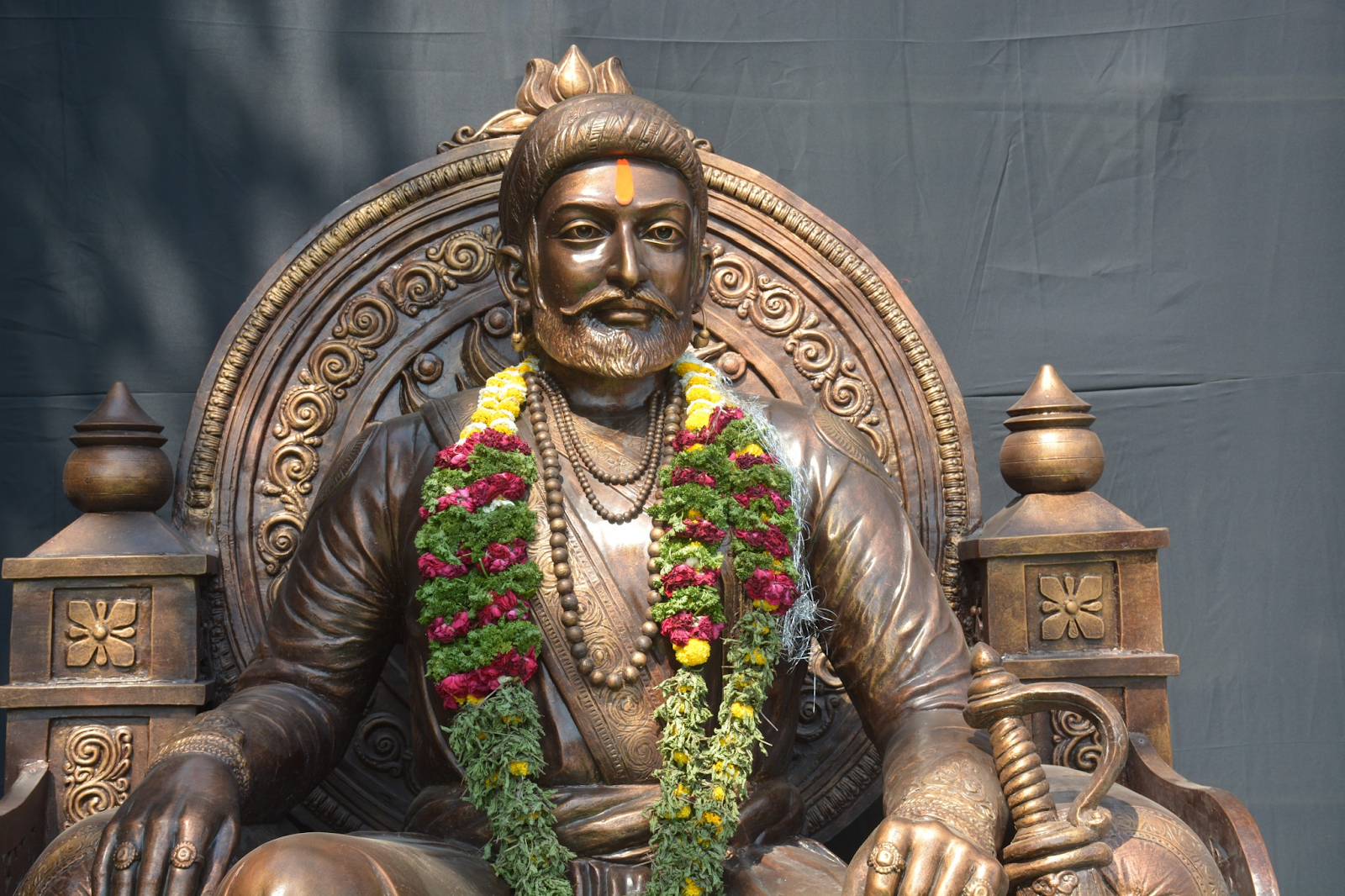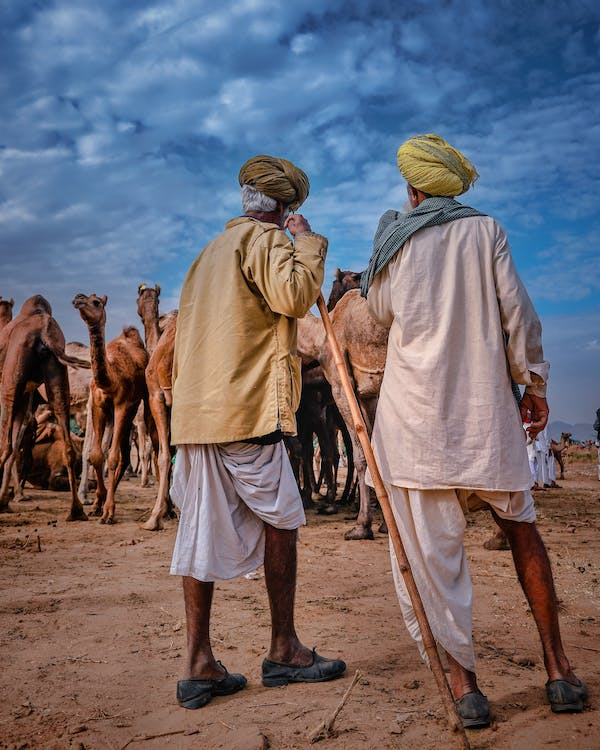Chhatrapati Shivaji Maharaj The Architect of Raigad and the Spirit of Maharashtra
Chhatrapati Shivaji Maharaj: The Legendary Ruler of Raigad, Maharashtra
Intro Chhatrapati Shivaji Maharaj is a revered figure in Indian history, known for his exceptional leadership, valor, and administrative skills. His legacy continues to inspire generations, especially in the state of Maharashtra, where he established his capital at Raigad. This article explores the life and accomplishments of Chhatrapati Shivaji Maharaj, shedding light on his association with Raigad, Maharashtra.
Early Life and Rise to Power: Chhatrapati Shivaji Maharaj was born in 1630 in the hill fort of Shivneri, near Pune, Maharashtra. He belonged to the Bhosle Maratha clan and was raised by his mother, Jijabai, who instilled in him a deep sense of patriotism and a strong desire to protect his people from foreign invasions.
At a young age, Shivaji displayed exceptional military skills and leadership qualities. In 1645, he embarked on his mission to establish a sovereign Maratha kingdom by capturing Torna Fort. This victory marked the beginning of his journey towards creating a powerful empire.
Foundation of Raigad: In 1674, Shivaji Maharaj was crowned as the Chhatrapati (King) of the Maratha Empire. Seeking a strategic location for his capital, he chose the fortress of Raigad, situated in the Sahyadri mountain range of Maharashtra. Raigad provided natural defenses and a vantage point, overlooking the Konkan region.
Shivaji Maharaj meticulously planned the construction of Raigad Fort, which served as the administrative and military center of his kingdom. The fort boasted impressive architecture, including palaces, granaries, temples, and water reservoirs. It became a symbol of Maratha pride and the seat of power for Shivaji Maharaj's rule.
Administration and Governance: One of Shivaji Maharaj's significant contributions was his visionary approach to governance. He implemented various administrative reforms that aimed to establish a just and inclusive society. He prioritized the welfare of his subjects, irrespective of their caste or creed, and emphasized the importance of local self-governance.
Shivaji Maharaj introduced a well-structured administrative system, known as the Ashtapradhan Mandal (Council of Eight Ministers), which included ministers responsible for different aspects of governance such as finance, justice, and intelligence. He emphasized the importance of efficient revenue management and implemented policies to uplift agriculture, trade, and infrastructure development.
Legacy and Impact: Chhatrapati Shivaji Maharaj's rule had a profound impact on the history of Maharashtra and India as a whole. His military acumen and guerrilla warfare tactics challenged the mighty Mughal Empire and laid the foundation for the Maratha Empire. He successfully defended Hinduism against foreign invasions and promoted a sense of pride and unity among his subjects.
Shivaji Maharaj's valor, determination, and commitment to justice continue to inspire people even today. His principles of good governance, military strategy, and religious tolerance remain relevant. The legacy of Raigad, the capital he established, serves as a testament to his visionary leadership and the indomitable spirit of the Maratha people.
Conclusion: Chhatrapati Shivaji Maharaj's association with Raigad, Maharashtra, is a significant chapter in Indian history. The fort stands as a testimony to his remarkable achievements and serves as a reminder of his enduring legacy. Shivaji Maharaj's contributions to governance, military tactics, and his unwavering commitment to his people continue to inspire and shape the collective consciousness of the nation. His vision and indomitable spirit make him an eternal symbol of courage, leadership, and patriotism.
Military Campaigns: Chhatrapati Shivaji Maharaj's military campaigns were instrumental in expanding his empire and securing the borders of his kingdom. He implemented a guerrilla warfare strategy known as "Ganimi Kava" (hit-and-run tactics), which allowed his forces to effectively combat larger armies. His successful expeditions included capturing strategic forts like Kondhana (later renamed Sinhagad) and Purandar, further solidifying his control over the region.
Naval Supremacy: Recognizing the importance of naval power, Shivaji Maharaj built a formidable navy, known as the Maratha Navy. He established a strong presence along the Konkan coastline and disrupted the maritime activities of the European powers, primarily the British, Portuguese, and Dutch. His naval achievements not only protected the coastal regions but also established trade dominance in the Arabian Sea.
Promotion of Art and Culture: Shivaji Maharaj had a deep appreciation for art, culture, and literature. He encouraged the development of Marathi literature, patronized poets and scholars, and himself composed several literary works. He also revived ancient traditions and rituals, promoting a sense of cultural identity among his subjects. His efforts played a crucial role in the resurgence of Marathi language and literature.
Religious Tolerance: Shivaji Maharaj was known for his religious tolerance and respect for all faiths. He promoted a policy of religious freedom and ensured the protection of minority communities. He built temples, mosques, and dharmshalas (resting places for pilgrims) to foster communal harmony. His inclusive approach towards religion contributed to the social fabric of his empire and earned him the respect of people from different backgrounds.
Impact on Indian History: Chhatrapati Shivaji Maharaj's legacy extends beyond Maharashtra and has left an indelible mark on Indian history. His successful resistance against the Mughal Empire laid the foundation for future freedom struggles against foreign rule. He inspired subsequent generations of leaders who fought for independence, including figures like Rani Lakshmibai of Jhansi and Mahatma Gandhi.
Commemoration and Remembrance: Even today, Chhatrapati Shivaji Maharaj is revered as a national hero in India. His birth anniversary, known as Shivaji Jayanti, is celebrated with great enthusiasm in Maharashtra and other parts of the country. Statues, memorials, and museums dedicated to his life and achievements can be found across Maharashtra, ensuring that his memory and ideals are preserved for future generations.
Chhatrapati Shivaji Maharaj's association with Raigad, Maharashtra, is a testament to his visionary leadership, military prowess, and commitment to good governance. His remarkable achievements continue to inspire and shape the collective consciousness of the nation, making him an iconic figure in Indian history. https://sami3corner.blogspot.com/
Intro Chhatrapati Shivaji Maharaj is a revered figure in Indian history, known for his exceptional leadership, valor, and administrative skills. His legacy continues to inspire generations, especially in the state of Maharashtra, where he established his capital at Raigad. This article explores the life and accomplishments of Chhatrapati Shivaji Maharaj, shedding light on his association with Raigad, Maharashtra.
Early Life and Rise to Power: Chhatrapati Shivaji Maharaj was born in 1630 in the hill fort of Shivneri, near Pune, Maharashtra. He belonged to the Bhosle Maratha clan and was raised by his mother, Jijabai, who instilled in him a deep sense of patriotism and a strong desire to protect his people from foreign invasions.
At a young age, Shivaji displayed exceptional military skills and leadership qualities. In 1645, he embarked on his mission to establish a sovereign Maratha kingdom by capturing Torna Fort. This victory marked the beginning of his journey towards creating a powerful empire.
Foundation of Raigad: In 1674, Shivaji Maharaj was crowned as the Chhatrapati (King) of the Maratha Empire. Seeking a strategic location for his capital, he chose the fortress of Raigad, situated in the Sahyadri mountain range of Maharashtra. Raigad provided natural defenses and a vantage point, overlooking the Konkan region.
Shivaji Maharaj meticulously planned the construction of Raigad Fort, which served as the administrative and military center of his kingdom. The fort boasted impressive architecture, including palaces, granaries, temples, and water reservoirs. It became a symbol of Maratha pride and the seat of power for Shivaji Maharaj's rule.
Administration and Governance: One of Shivaji Maharaj's significant contributions was his visionary approach to governance. He implemented various administrative reforms that aimed to establish a just and inclusive society. He prioritized the welfare of his subjects, irrespective of their caste or creed, and emphasized the importance of local self-governance.
Shivaji Maharaj introduced a well-structured administrative system, known as the Ashtapradhan Mandal (Council of Eight Ministers), which included ministers responsible for different aspects of governance such as finance, justice, and intelligence. He emphasized the importance of efficient revenue management and implemented policies to uplift agriculture, trade, and infrastructure development.
Legacy and Impact: Chhatrapati Shivaji Maharaj's rule had a profound impact on the history of Maharashtra and India as a whole. His military acumen and guerrilla warfare tactics challenged the mighty Mughal Empire and laid the foundation for the Maratha Empire. He successfully defended Hinduism against foreign invasions and promoted a sense of pride and unity among his subjects.
Shivaji Maharaj's valor, determination, and commitment to justice continue to inspire people even today. His principles of good governance, military strategy, and religious tolerance remain relevant. The legacy of Raigad, the capital he established, serves as a testament to his visionary leadership and the indomitable spirit of the Maratha people.
Conclusion: Chhatrapati Shivaji Maharaj's association with Raigad, Maharashtra, is a significant chapter in Indian history. The fort stands as a testimony to his remarkable achievements and serves as a reminder of his enduring legacy. Shivaji Maharaj's contributions to governance, military tactics, and his unwavering commitment to his people continue to inspire and shape the collective consciousness of the nation. His vision and indomitable spirit make him an eternal symbol of courage, leadership, and patriotism.
Military Campaigns: Chhatrapati Shivaji Maharaj's military campaigns were instrumental in expanding his empire and securing the borders of his kingdom. He implemented a guerrilla warfare strategy known as "Ganimi Kava" (hit-and-run tactics), which allowed his forces to effectively combat larger armies. His successful expeditions included capturing strategic forts like Kondhana (later renamed Sinhagad) and Purandar, further solidifying his control over the region.
Naval Supremacy: Recognizing the importance of naval power, Shivaji Maharaj built a formidable navy, known as the Maratha Navy. He established a strong presence along the Konkan coastline and disrupted the maritime activities of the European powers, primarily the British, Portuguese, and Dutch. His naval achievements not only protected the coastal regions but also established trade dominance in the Arabian Sea.
Promotion of Art and Culture: Shivaji Maharaj had a deep appreciation for art, culture, and literature. He encouraged the development of Marathi literature, patronized poets and scholars, and himself composed several literary works. He also revived ancient traditions and rituals, promoting a sense of cultural identity among his subjects. His efforts played a crucial role in the resurgence of Marathi language and literature.
Religious Tolerance: Shivaji Maharaj was known for his religious tolerance and respect for all faiths. He promoted a policy of religious freedom and ensured the protection of minority communities. He built temples, mosques, and dharmshalas (resting places for pilgrims) to foster communal harmony. His inclusive approach towards religion contributed to the social fabric of his empire and earned him the respect of people from different backgrounds.
Impact on Indian History: Chhatrapati Shivaji Maharaj's legacy extends beyond Maharashtra and has left an indelible mark on Indian history. His successful resistance against the Mughal Empire laid the foundation for future freedom struggles against foreign rule. He inspired subsequent generations of leaders who fought for independence, including figures like Rani Lakshmibai of Jhansi and Mahatma Gandhi.
Commemoration and Remembrance: Even today, Chhatrapati Shivaji Maharaj is revered as a national hero in India. His birth anniversary, known as Shivaji Jayanti, is celebrated with great enthusiasm in Maharashtra and other parts of the country. Statues, memorials, and museums dedicated to his life and achievements can be found across Maharashtra, ensuring that his memory and ideals are preserved for future generations.
Chhatrapati Shivaji Maharaj's association with Raigad, Maharashtra, is a testament to his visionary leadership, military prowess, and commitment to good governance. His remarkable achievements continue to inspire and shape the collective consciousness of the nation, making him an iconic figure in Indian history. https://sami3corner.blogspot.com/



Comments
Post a Comment